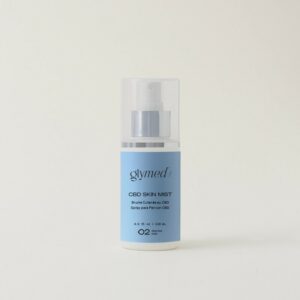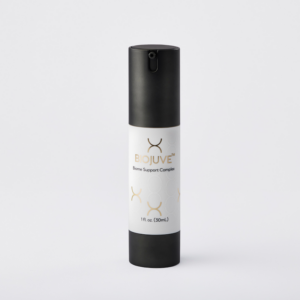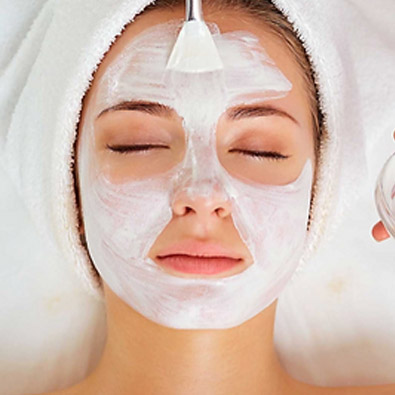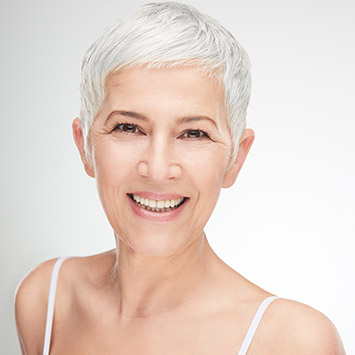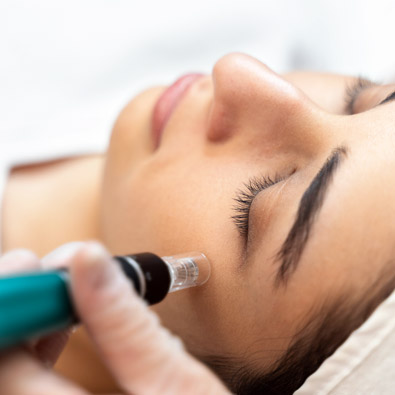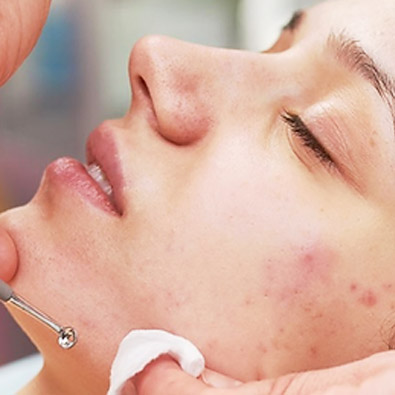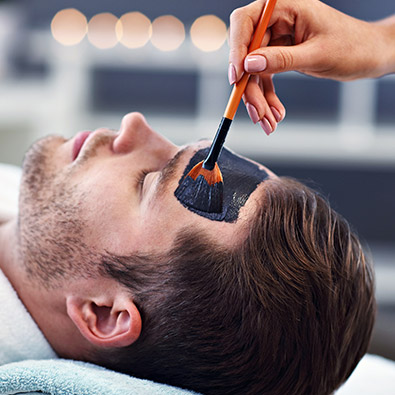The end of the year is near and our attention turns to self-reflection and embracing a renewed commitment to well-being. Skin health, a vital component of our overall wellness, takes center stage. Below we explore some proven recommendations to equip ourselves with knowledge that empowers us to care for our skin more intentionally. Erin Blaser, the founder of Skyn Esthetics, one of the most renowned Boutique Aesthetic & Medspa Centers in Boca Raton, FL, consistently shares the best tips for healthy skin that will help you say goodbye to wrinkles, achieve a radiant glow, and maintain soft and supple skin throughout the year. (And you can learn more about Erin here)
1. Eat a healthful diet
There is a multibillion-dollar industry dedicated to products that keep your skin looking its best, and that claim to fight signs of aging. But moisturizers only go skin deep, and aging develops at a deeper, cellular level.
What you eat is as important as the products that you put on your skin. Your diet could improve your skin health from the inside out, so a clear complexion begins with eating a healthful diet.
Skin-healthy foods
Here are some foods that have been acknowledged by research as being skin-healthy.
Mangoes contain compounds with antioxidant properties. These compounds help to protect components of the skin, such as collagen.
Tomatoes have skin cancer-prevention benefits.
One study in mice revealed that daily tomato consumption decreased the development of skin cancer tumors by 50 percent after UV light exposure.
Consuming tomatoes on a daily basis may help to protect against skin cancer.
Research has shown that incorporating tomato paste into your meals may help to protect against sunburn. After 10 weeks, people who consumed 40 grams of tomato paste per day had 40 percent less sunburn than the control group.
Lycopene, the pigment responsible for giving tomatoes their deep red color, is thought to play a role in the protective effect of tomatoes against UV damage.
Olive oil is associated with a lower risk of severe facial photoaging — that is, cumulative damage to the skin that includes wrinkles, dark spots, and discoloration, which result from long-term sunlight exposure.
Cocoa flavanols found in dark chocolate may improve the structure and function of the skin. Scientists discovered that cocoa flavanols decreased roughness and scaling on the skin, increased skin hydration, and helped to support the skin’s defenses against damage from UV rays.
Green tea has been tied to many skin benefits. Compounds found in green tea called polyphenols rejuvenate dying skin cells, which suggests that they may be useful for healing wounds or certain skin conditions.
It has shown promising results as a potential treatment for skin conditions such as psoriasis and dandruff. Patches of dry, flaky, and red skin often feature in these conditions — usually as a result of inflammation and the overproduction of skin cells. Green tea may slow down the production of skin cells and suppress inflammation.
White tea has anti-cancer and anti-aging properties. One study indicates that some ingredients in white tea may protect the skin from oxidative stress and immune cell damage.
Kale is one of the best sources of lutein and zeaxanthin. Lutein and zeaxanthin may protect against light-induced skin damage, especially from UV rays.
Omega-3 found in oily fish, walnuts, and pumpkin seeds or oils such as linseed oil and corn oil may prevent dryness and scaling of the skin.
Soy may help to improve crow’s feet and skin wrinkles that appear at the outer corner of the eyes in menopausal women.
Never rely on foods to protect you from the sun. To protect yourself from sun exposure, always use sunscreen with an SPF of at least 15, seek shade between the hours of 10 a.m. and 2 p.m., and wear clothing that covers your skin and a wide-brimmed hat.
Calorie restriction diet
Research has demonstrated in mice that reducing calorie intake slows down the cellular aging process. This finding could prove to be an anti-aging strategy to test in humans in the future.
Scientists found that reducing the number of calories consumed by 35 percent had an impact on aging inside a cell. Cutting calories caused the cell’s protein makers, called ribosomes, to slow down, and the aging process also to decelerate.
This decreased speed not only lowered the production of ribosomes, but it also gave them time to repair themselves and keep the entire body functioning well.
Other early research has shown that allantoin — a compound found in many anti-aging face creams — mimics the effect of calorie restriction diets and increases lifespan by more than 20 percent. The elixir of life could be hiding in your bathroom cabinet.
Unfortunately, this research has so far only been conducted in worms. It may, however, eventually pave the way for new longevity pathways to explore in humans.
Alcohol
Cutting your intake of alcohol could lower your risk of developing non-melanoma skin cancers. Research uncovered that higher alcohol intake was associated with a higher risk of developing basal cell carcinoma and cutaneous squamous cell carcinoma.
Researchers discovered that for each 10-gram increase in consumption of alcohol per day, the risk of basal cell carcinoma rose by 7 percent and the risk of cutaneous squamous cell carcinoma rose by 11 percent.
2. Keep stress in check
Have you ever noticed that right before an important event, an unsightly pimple appears on your face? Well, scientists have identified some links between stress levels and skin problems.
In a study of college students, those who experienced high-stress levels were more likely to experience skin issues such as:
Using stress reduction techniques could help to keep your skin looking fresh and clear.
- itchy skin
- hair loss
- flaky, oily, or waxy patches on the scalp
- troublesome sweating
- scaly skin
- hand rashes
Other research showed that teenagers who reported high-stress levels were 23 percent more likely to have severe acne.
The researchers suspect that stress increases the quantity of sebum, which is the oily substance that blocks pores. This, in turn, leads to greater acne severity.
Reducing your stress levels may lead to clearer skin. If you think that stress is having an impact on your skin, try stress reduction techniques such as tai chi, yoga, or meditation.
3. Keep moisture in the skin
Skin moisturizers keep the top layer of skin cells hydrated and seal in moisture. Moisturizers often contain humectants to attract moisture, occlusive agents to retain moisture in the skin, and emollients to smooth the spaces between skin cells.
The American Academy of Dermatology recommends the following ways to keep moisture in and prevent dry, red, and itchy skin:
Moisturize your skin immediately after getting out of the shower to lock in moisture.
- Take one 5- to 10-minute shower or bath per day. Excessive washing can strip away the oily layer of the skin and dry it out.
- Use warm water instead of hot water.
- Minimize the use of harsh soaps. Use a gentle and fragrance-free cleanser.
- Stay away from abrasive scrub brushes, bath sponges, and washcloths that can damage the skin’s surface.
- Pat skin gently dry with a towel.
- Moisturize immediately after washing. To trap moisture, ointments, lotions, and creams need to be applied within minutes of drying off.
Erin loves and highly recommends the CBD Skin Mist.
Infused with CBD and Vitamin B3, this mist is used to assist in balancing freshly cleansed skin for a radiant complexion. Vitamin B3 has been known to soothe irritation, reduce the appearance of redness, and improve overall skin tone. It is ideal for setting makeup or as a quick refresher throughout the day.
- Use ointments or creams rather than lotions in order to minimize irritation.
One of the best products to treat skin irritation is the Biome Support Complex from BIOJUVE — “This unique mix of proteins, polypeptides, antioxidants, and more works to boost and improve the effectiveness of the living microbe technology. It tightens, firms, and adds a touch of hydration to the skin, bringing back its natural radiance.” states Erin.
- Never scratch the skin. Cold compresses and moisturizers should help to control itching.
- Wear non-irritating clothes. When wearing clothing made from wool or other rough materials, wear silk or cotton underneath.
- Use hypoallergenic laundry detergent.
- Avoid getting too close to fireplaces and other heat sources that can dry out skin.
- Switch on a humidifier in the winter to replenish moisture in the skin’s top layer.
Contact your dermatologist if these simple changes do not bring relief from dry skin. They can provide targeted treatment for your specific skin complaint.
4. Quit smoking
Smoking ages facial skin and skin located in other body areas. Smoking narrows the blood vessels found in the outer layer of the skin, which reduces blood flow and exhausts the skin of the nutrients and oxygen it needs to remain healthy.
Quitting smoking can improve your skin health and prevent smoking-related wrinkles from forming.
Collagen and elastin give the skin its strength and elasticity. Smoking may reduce the natural elasticity of the skin by causing the breakdown of collagen and reduction of collagen production.
Furthermore, the repetitive expressions that are made when smoking — such as pursing the lips — can contribute to wrinkles on the face.
If you currently smoke, the best thing that you can do for your skin health is quit. You can visit Smokefree.gov, an initiative from the National Cancer Institute (NCI), for information about quitting smoking.
5. Get your beauty sleep
Getting your beauty sleep will banish those dark circles around your eyes and improve your skin tone, and, best of all, it is free.
Getting the recommended hours of sleep could do wonders for your complexion.
The National Sleep Foundation recommends that adults sleep for between 7 and 9 hours every day. Sleeping for under that amount of time could be detrimental to your health — and your skin, in particular.
Chronic sleep deprivation is known to be linked with obesity, immune deficiency, diabetes, and cancer, but research has shown that sleep quality may also have a significant impact on skin function and aging.
People classed as poor sleepers had increased signs of premature skin aging and a decreased ability for their skin to repair itself at night from environmental stressors such as sun exposure.
During deep sleep, your body enters repair mode and regenerates skin, muscles, blood, and brain cells. Without adequate sleep, your body is unable to produce new collagen. Collagen prevents your skin from sagging.
Try to get an early night and sleep for a full 7 hours to look your best.
Keeping your skin healthy and young does not necessarily mean breaking the bank by purchasing expensive creams and lotions; by following these simple steps, you can make dull and lifeless skin glow.
Prioritize the health of our skin in 2024. Embrace this season of self-care, and let the glow of healthy skin be your lifetime delight. Your journey to radiant skin starts here! Schedule an appointment today at 561-602-3383.
Follow us on IG at Instagram.com/SkynEsthetics.Boca and like us on Facebook at Facebook.com/SkynEsthetics.Boca. Explore, learn, and glow!
Reference: [https://www.medicalnewstoday.com/articles/320071#5.-Get-your-beauty-sleep]



